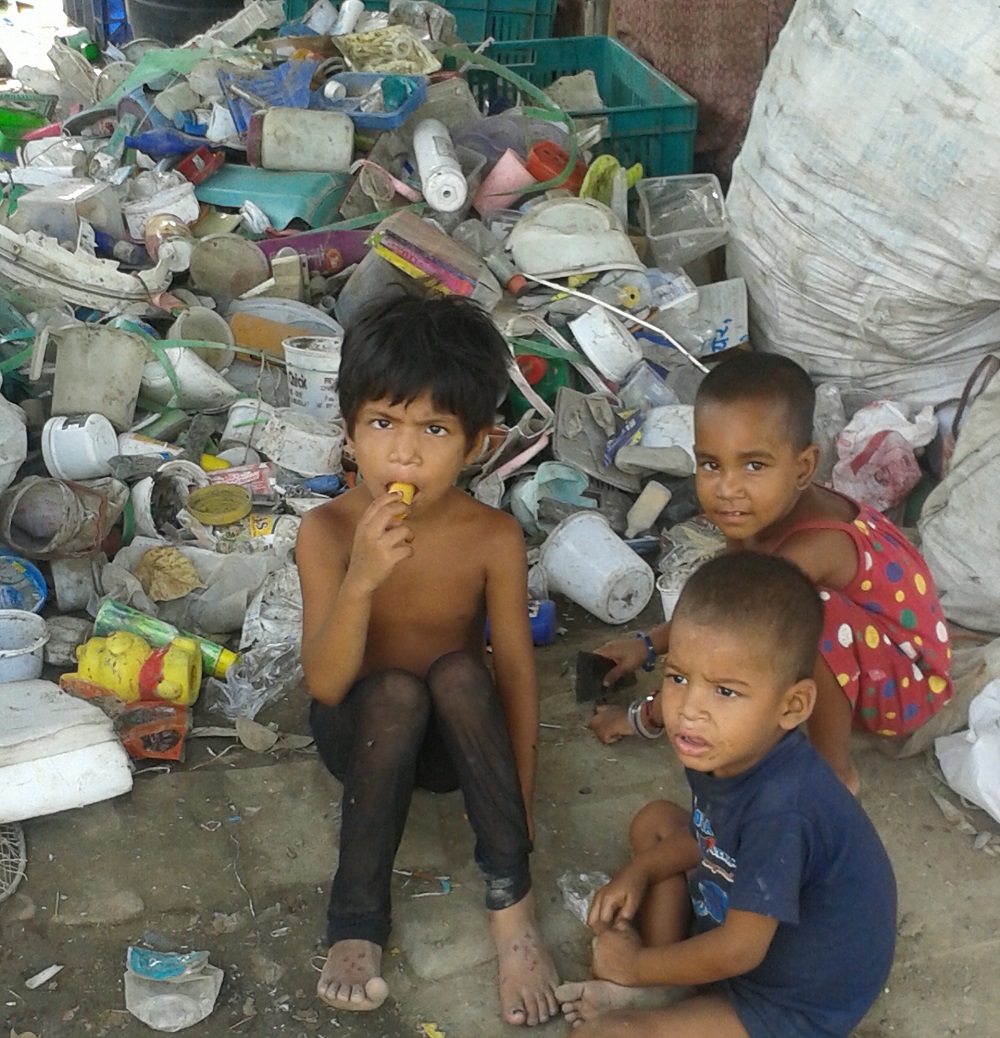By Ankita Nawalakha:
“Kisi ko bolna mat ki hum Bangladesh se hain, theek? Humein maar denge, ya wapas bhej denge. Hum wahan nahi jaana chaahte. Wahan kuch nahi hai. Yahan humein acha lagta hai. Wahan toh hum bhooke mar jaate the” (Don’t tell anyone that we are from Bangladesh. They’ll kill us or send us back. We don’t want to go there. We like it here. We were starving there.)Â
This is the story of Ms. Rani and many more like her who are inhabitants of the rag pickers’ colony in Delhi or ‘Bangali Basiti’ as they call it. All the inhabitants are illegal immigrants from Bangladesh and hence they fear recognition by the authorities. Little do these people know that everybody- from local police officers to highest government officials are very much aware of the fact that they are illegal immigrants and they really don’t care. They don’t care where do these people live or to be more precise, how do they live. The authorities don’t care whether their living conditions are the most substandard in the nation, they don’t care whether their children study or not, they don’t care about the number of people who die due to diseases caught by living in such pathetic condition; simply for the reason that these immigrants don’t matter. India doesn’t recognize them, they are not on the voters list and hence it’s not important to work for them- the most marginalized section of the society.
As I stepped in the Basti, I gasped. I have been to various slum areas but this was nothing like I have ever seen. Katcha makaans made out of garbage. No running water. No stable source of electricity. No sanitation- at all. Heaps and heaps of garbage inches away from people’s homes. But when you talk to people, they will tell you how happy they are in India. ‘India is heaven for us’ one resident said in Bengali. “Really? Why do you say that?” I asked. And then he told me how his family is able to eat meals here in India. All of them- from grandmother to the 5-year-old child is engaged in rag picking, sorting and selling, which fetches them around Rs 5000 a month. There in Bangladesh they had nothing, absolutely nothing to do, many even starved to death. Hence, they find beauty in the garbage here.
These people expect very little. However, they do have certain complaints. The biggest one being the lack of any sort of identity. They don’t have any identity card- ration, Aadhar, voter, BPL. This deprives them of making their voice heard or availing the benefits of various government schemes. They have applied for Aadhar cards many times- but their application is either rejected because of lack of any identity proof or they never hear back from the Dalaals who take Rs 50 from them and never return. So what has happened is that a viscous cycle has been created- they can’t get any identity proof because they don’t have an identity proof, and hence they can’t avail the benefits of any developmental scheme.
Continuing the vicious cycle, even their kids are subjected to poverty, discrimination, poor living standards and are deprived of a healthy childhood. Most kids can’t get admissions to schools because, again, there are no identity cards. This is one of saddest things in the area. What have these kids done? Is it their fault that they are born to immigrant parents? Furthermore, they don’t know anything about RTE- Right to Education. In fact, clauses in RTE act dictates that sections from underprivileged society don’t need to have any identity proof to get admissions in private schools, all they need to do is sign an undertaking. However, like most laws in our country- this remains, largely, on paper. Adding to this already messed up situation, the residents simply refuse to sign any sort of paper. When my co-interns tried to get them sign the undertaking, they simply refused because they are sceptical, scared that we are deceiving them. It has only been after a month of trust building that they signed the undertaking.
Talking about the living conditions, they are far worse than you can imagine. The ‘toilets’ consist of two bricks in between which, they have dug a hole which is full of water. The houses are made of garbage- tarpaulins, torn sarees, shirts, and tins to hold the tent. The only source of water in the hand-pump which is almost a kilometre away. There is an illegal electricity connection which allows them to use one bulb in each house. Because the area is ignored by all authorities- even law and order eludes the place. The place serves as a breeding ground for all sorts of illegal activities, crimes against women living in slums is common. And obviously- health of people living in the basti is down the drains- malaria, dengue, cholera is more than common. I won’t say more about the living conditions as I will let the pictures do the talking.
My day at rag pickers colony came as a tight slap on my face. It showed me the reality of our ‘Mahaan Bharat’. Moreover, it showed me how petty I am- thinking of buying fancy phones and laptops and clothes when a large chunk of my country’s people live right in the middle of garbage, defecate in complete mess, when all that little kids play with are thrown tins and used jars. It’s funny that in a city where lavish malls are mushrooming everywhere, we have places like this, where people are content and happy with having two meals a day, where people live without any identity, where all that kids see around them is garbage and more garbage. Bangali Basti was a solid proof that India is not growing together, the rich are getting richer and this gap is increasing with every passing day.
